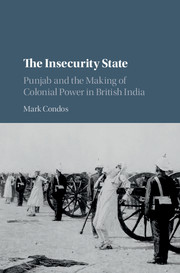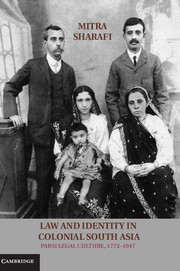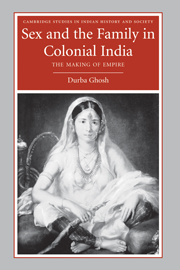
Gentlemanly Terrorists
Political Violence and the Colonial State in India, 1919–1947
$35.99 (P)
Part of Critical Perspectives on Empire
- Author: Durba Ghosh, Cornell University, New York
- Date Published: July 2017
- availability: Available
- format: Paperback
- isbn: 9781316637388
$
35.99
(P)
Paperback
Other available formats:
Hardback, eBook
Looking for an examination copy?
If you are interested in the title for your course we can consider offering an examination copy. To register your interest please contact [email protected] providing details of the course you are teaching.
-
In Gentlemanly Terrorists, Durba Ghosh uncovers the critical place of revolutionary terrorism in the colonial and postcolonial history of modern India. She reveals how so-called 'Bhadralok dacoits' used assassinations, bomb attacks, and armed robberies to accelerate the departure of the British from India and how, in response, the colonial government effectively declared a state of emergency, suspending the rule of law and detaining hundreds of suspected terrorists. She charts how each measure of constitutional reform to expand Indian representation in 1919 and 1935 was accompanied by emergency legislation to suppress political activism by those considered a threat to the security of the state. Repressive legislation became increasingly seen as a necessary condition to British attempts to promote civic society and liberal governance in India. By placing political violence at the center of India's campaigns to win independence, this book reveals how terrorism shaped the modern nation-state in India.
Read more- Revises the conventional narrative that the nonviolent movement led by Gandhi laid the civic foundations of Indian civil society
- Engages with contemporary debates on political violence and terrorism, central to worldwide security concerns about the recent rise of global terrorism
- Explores the use of legislation in suppressing political violence, appealing to readers of law and political theory
Reviews & endorsements
'Ghosh (Cornell) explores this story in her excellent monograph, massively researched and clearly written. Recommended.' R. A. Callahan, Choice
See more reviews'Ghosh shows impressive sensitivity to historical meaning and context and, through her methodology as much as her analysis, delivers a landmark study of political violence and the colonial state.' David Arnold, The English Historical Review
'It is in some ways a very traditional history. While making excellent use of revolutionary memoirs and testimonies, reinforced by some graphic contemporary illustrations and figures, the book’s central argument is grounded in evidence gleaned from official correspondence, police intelligence files, and private papers … However Ghosh departs from precedent in her meticulous and harrowing documentation of the legal and physical instruments of colonial repression such as the Bengal Criminal Law Amendment Acts of 1925 and 1930 … she also provides a clear-sighted exposé of the deceit that lay behind the government’s promise of eventual dominion status. Yet as the book’s conclusion reminds us, much of this panoply of state repression was imported into the governing fabric of the republic, raising the question of how much really changed with the coming of freedom.' Ian Copland, The American Historical Review
Customer reviews
Not yet reviewed
Be the first to review
Review was not posted due to profanity
×Product details
- Date Published: July 2017
- format: Paperback
- isbn: 9781316637388
- length: 290 pages
- dimensions: 227 x 151 x 14 mm
- weight: 0.48kg
- contains: 6 b/w illus.
- availability: Available
Table of Contents
Introduction
1. The reforms of 1919: Montagu-Chelmsford, the Rowlatt Act, Jails Commission, and the Royal Amnesty
2. The history of revolutionary terrorism through autobiography
3. After Chauri Chaura: the revival and repression of revolutionary terrorism
4. After the Chittagong Armoury Raid: revolutionary terrorism in the 1930s
5. From political prisoner to security prisoner
6. Revolutionary autobiographies: postcolonial tellings of nationalist history
Conclusion.
Sorry, this resource is locked
Please register or sign in to request access. If you are having problems accessing these resources please email [email protected]
Register Sign in» Proceed
You are now leaving the Cambridge University Press website. Your eBook purchase and download will be completed by our partner www.ebooks.com. Please see the permission section of the www.ebooks.com catalogue page for details of the print & copy limits on our eBooks.
Continue ×Are you sure you want to delete your account?
This cannot be undone.
Thank you for your feedback which will help us improve our service.
If you requested a response, we will make sure to get back to you shortly.
×








